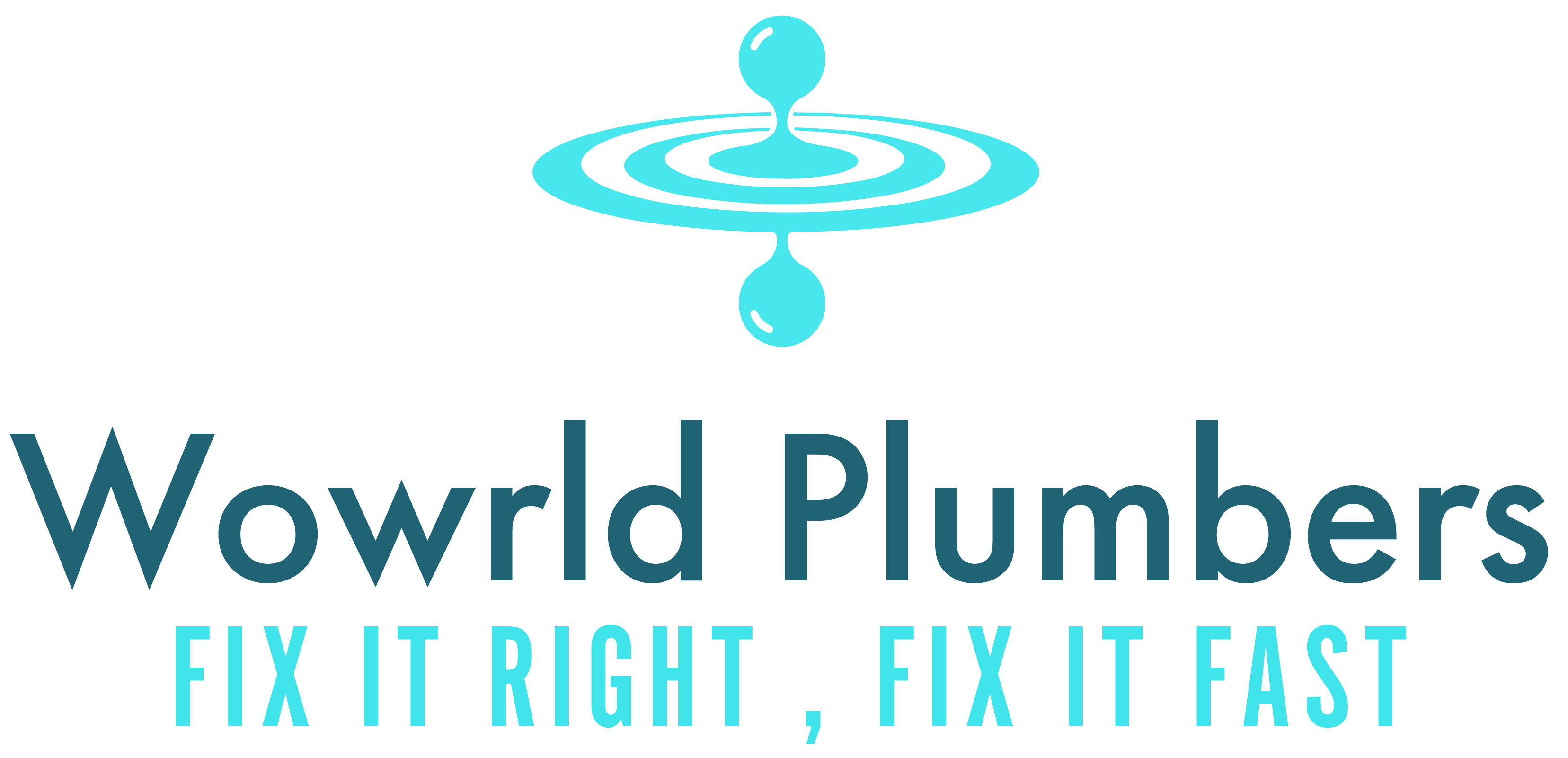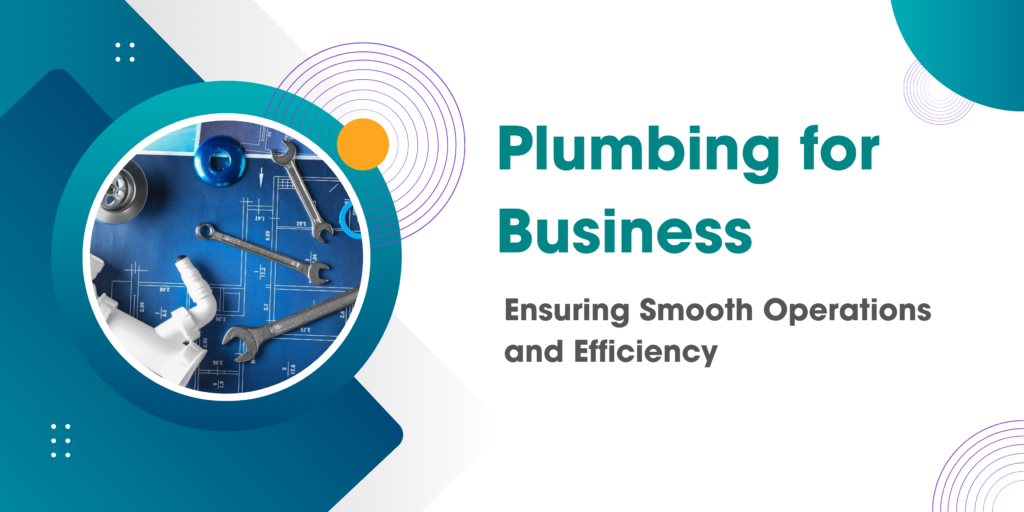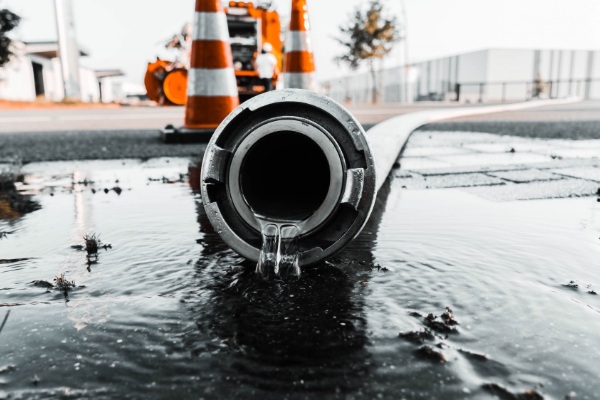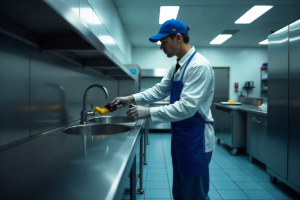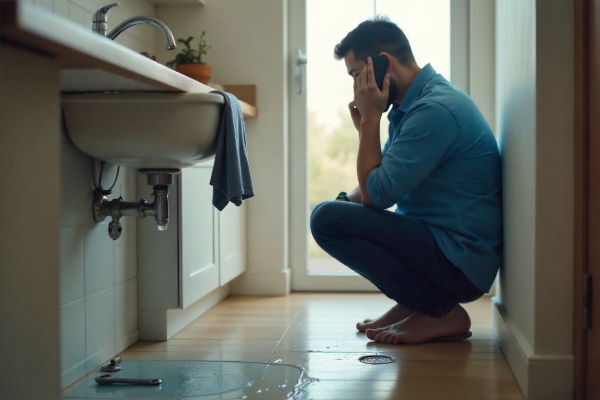In any business, especially those with high customer or employee traffic, plumbing systems are vital to ensuring the smooth running of daily operations. From restaurants to office buildings, each business type has unique plumbing needs. This blog will cover the essential plumbing considerations for businesses, maintenance tips, and best practices to ensure your plumbing system supports your business’s long-term success.
Why Plumbing is Crucial for Your Business
Having a functional plumbing system is essential for businesses that depend on water for their operations. Here are just a few ways plumbing impacts your business:
- Customer Experience: Whether you run a hotel, restaurant, or retail store, customers expect clean restrooms and well-maintained plumbing fixtures. Plumbing issues can negatively affect customer experience and result in lost business.
- Employee Comfort: Ensuring reliable access to hot and cold water, well-maintained restrooms, and functioning kitchen sinks is key to employee comfort and productivity.
- Health and Safety: Plumbing systems that are not properly maintained can lead to unsanitary conditions, water contamination, or safety hazards like leaks or water damage. Regular plumbing checks help mitigate these risks.
Key Plumbing Considerations for Businesses
Each type of business has different plumbing needs based on its operations, size, and customer volume. Here’s a breakdown of plumbing considerations for various types of businesses:
Restaurants and Food Service
- Grease Trap Maintenance: Restaurants often deal with grease buildup, which can clog plumbing and cause drainage issues. Installing and regularly cleaning grease traps is essential.
- High-Volume Drains: Kitchen sinks, dishwashers, and floor drains need to be regularly inspected and cleaned to prevent blockages.
- Water Heaters: Hot water is critical for both food preparation and washing dishes. Make sure your water heater is appropriately sized and well-maintained.
Hotels and Hospitality
- Multiple Restrooms: In hotels, with multiple bathrooms, sinks, and showers, it’s essential to ensure there are no leaks, clogs, or low water pressure issues.
- Water Pressure and Temperature: High water demand can put a strain on the plumbing system. Commercial water heaters and pressure boosting systems can help maintain consistent water supply.
- Sewer Line Maintenance: Regular sewer line cleaning and inspection are crucial to prevent backups that could affect multiple units in the building.
Offices and Retail Spaces
- Restroom Facilities: Ensuring that restrooms are functional and clean is critical for the comfort of both employees and customers.
- Water Coolers and Sinks: Offices and retail spaces that have breakrooms or kitchens need a steady water supply for sinks and water dispensers.
- Preventative Maintenance: Routine maintenance checks for leaks and water pressure problems help prevent costly repairs down the line.
Regular Plumbing Maintenance for Businesses
Maintaining a plumbing system for your business can help prevent large, expensive issues from arising. Regular inspections and repairs can save time, money, and prevent disruptions. Here are some key steps for businesses to stay on top of plumbing:
- Annual Inspections: Hire a licensed plumber to inspect your system annually. They will check for leaks, corrosion, pressure issues, and any other plumbing problems before they become costly emergencies.
- Drain Cleaning: Regular drain cleaning can prevent blockages and slow drainage, which can lead to larger plumbing issues. For high-traffic businesses like restaurants, consider having drains cleaned quarterly.
- Water Heater Maintenance: Ensure that your water heater is cleaned and serviced regularly. This extends the lifespan of the unit and prevents overheating or malfunctioning.
- Check for Leaks: Even small leaks can result in significant water wastage and higher utility bills. Make it a habit to check plumbing fixtures regularly for any signs of leaks.
Signs Your Business Needs Plumbing Services
How do you know when it’s time to call a professional plumber? Here are common signs that indicate your plumbing system needs attention:
- Slow Draining Water: If sinks, toilets, or showers drain slowly, this could signal a blockage in the plumbing system.
- Foul Odors: Bad smells coming from drains or pipes can indicate trapped food, waste, or bacterial buildup.
- Low Water Pressure: A drop in water pressure can be caused by leaks, blockages, or issues with your water supply. It’s essential to get this checked before it causes further damage.
- Frequent Clogs or Backups: If your drains back up frequently, or if you experience frequent clogs, it could indicate a more serious problem with your sewer lines or pipes.
Emergency Plumbing for Business
While preventative maintenance can solve most problems, plumbing emergencies still occur. Having an emergency plan and a trusted plumber can save you time and money in critical situations. Some common plumbing emergencies businesses face include:
- Burst Pipes: In colder months, pipes may freeze and burst, causing significant water damage. Having your pipes insulated can reduce the risk, but it’s essential to have a plumber ready in case of an emergency.
- Sewer Backups: A blocked or damaged sewer line can result in raw sewage backing up into your property, which is both unsanitary and disruptive.
- Water Heater Failure: In businesses like restaurants or hotels, water heater failure can cause an immediate loss of service and comfort. Be sure to have a backup plan in place.
Choosing the Right Plumbing Service for Your Business
When selecting a plumbing company for your business, it’s important to find one that can handle the specific needs of your operation. Consider the following when choosing a plumbing service:
- Experience with Commercial Plumbing: Ensure the plumbing company has experience with commercial-grade systems and understands the scale and complexity of your business’s plumbing needs.
- Licensing and Insurance: A licensed plumber ensures they meet industry standards. Insurance is important in case of damage during repairs.
- Emergency Service Availability: Your plumbing company should offer 24/7 emergency service to handle urgent issues without delay.
- Transparent Pricing: Make sure they provide a detailed estimate for the work and offer fair pricing without hidden fees.
Plumbing for business is a crucial aspect of maintaining a safe, functional, and efficient workspace. From regular maintenance to emergency repairs, understanding the unique plumbing needs of your business can help you avoid costly disruptions. By implementing preventative measures, conducting regular inspections, and choosing a reliable plumbing service, you can ensure your plumbing system supports your business for the long term.
